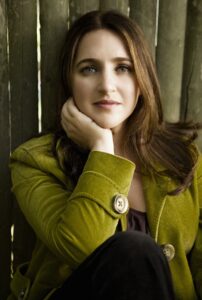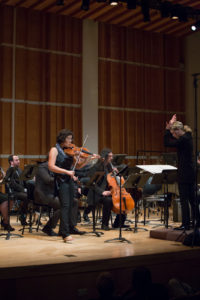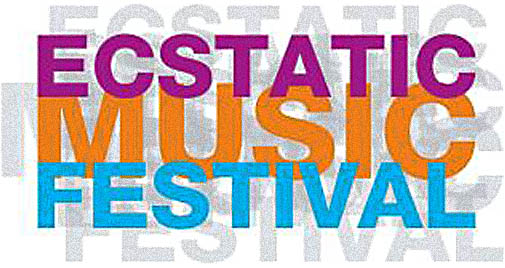Simone Dinnerstein and Baroklyn Perform Glass at Merkin Hall

Kaufman Music Center
Piano Dialogues
Simone Dinnerstein with Baroklyn
May 12, 2025
Published on Sequenza 21
NEW YORK – Last Monday, the pianist Simone Dinnerstein brought her Baroklyn project to Kaufman Music Center’s Merkin Hall to perform an all Philip Glass program. Baroklyn is a string ensemble, augmented at the concert by harp and celesta, assembled by Dinnerstein from musician friends with an eye towards a mostly, but not exclusively, female group.
The concert opener was The Hours Suite, excerpted from the film score and arranged by Michael Riesman, a longtime musical director for Philip Glass. Unlike many film score segments, which are brief vignettes, the three movements here are substantial, evocative of the film but transcending it to morph into a symphonic triptych. Conducting from the piano, Dinnerstein’s gestures were clear, and Baroklyn’s musicians were responsive and performed in a well-coordinated fashion, even when in the midst of myriad metric shifts at high speed. The group’s keen intonation afforded the harmonies a lustrous quality.
Mad Rush is one of the most abundantly virtuosic of Glass’s piano pieces, and it has become a showcase for Dinnerstein’s superlative chops. The piece contains furious fast runs, with a concomitant sense of blissful austerity in the slower passages. Dinnerstein inhabited both demeanors authoritatively.
The concert concluded with Tirol Concerto, the composer’s first piano concerto. Prior to the performance, I had some misgivings about whether Baroklyn’s lithe approach had the requisite heft for the piece. However, I was won over by the powerful performance they mounted, right-sized for Merkin Hall but resolute and often jubilant. An interpretive challenge in the piece is the shaping of its dramatic arc. The first movement begins with a slow introduction and then picks up steam, and the finale is a brisk moto perpetuo, both straightforward in design. It is the central movement, a sprawling and content-filled quarter of an hour, that can all too easily imbalance the proceedings. Not so here, where the interpretation sliced it into a series of tableaux that would fit right in as passages for a Glass opera.
On May 30th, Baroklyn will release Complicité, a recording of J.S. Bach for the Supertrain imprint. They are joined by guest artists Peggy Pearson, who plays oboe d’amore, and mezzo-soprano Jennifer Johnson Cano. Dinnerstein’s graceful arrangements of Bach arias for piano and ensemble are adroit tropes on cantata movements. The Keyboard Concerto in E major is an excellent vehicle for Dinnerstein, who plays it in period-informed fashion while suiting her touch and tempos to the modern grand. Johnson Cano’s mezzo-soprano voice is the centerpiece of Cantata 170, which is presented in full. She sings with rich tone and judicious use of vibrato, sumptuously phrasing long legato lines and dexterously performing melismatic passages. In the Air, composer Philip Lasser’s reworking of Bach’s Air on a G-string, is replete with tender ornamentations, and a pleasant valediction. Complicité is a recital disc that, even in arrangements and on modern instruments, shows Dinnerstein and Baroklyn to be gifted advocates for Bach.
-Christian Carey



